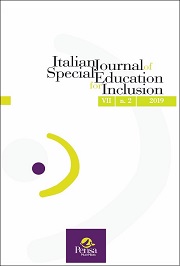Detenzione parentale e comportamenti delinquenziali nella prole: quale possibile intervento*?
DOI:
https://doi.org/10.7346/sipes-02-2019-16Resumen
Research on the health of children after one of their parent’s imprisonment is relatively poor despite studies that link adverse experiences of childhood to a series of physical and mental health conditions. In this review, several clinical trials have been examined to examine the risks of child exposure to an unstable and dysfunctional family structure due to detention of one or both parents. Among the aspects related to detention, the one most concerning for prisoners is the separation from the family, and in particular from the children. From the offspring point of view, the detention of one parent translates to a loss of a stable reference point, which over the years leads to them taking less advisable choices that in turn make detention more likely. Studies have shown that, over the years, minor children of detainees develop acceptance towards parental detention, with normalization of event up to ignoring the socially shared concept of “detention” which morphs into the idea of what delinquency represents in micro and macro criminality contexts. It becomes important to foster relationships with children and with the prisoner’s family, but it becomes even more important that the prisoner embarks on a path that leads them to regain the parenting role, which allows them to feel like a person with resources to protect and with relationships to cultivate.


